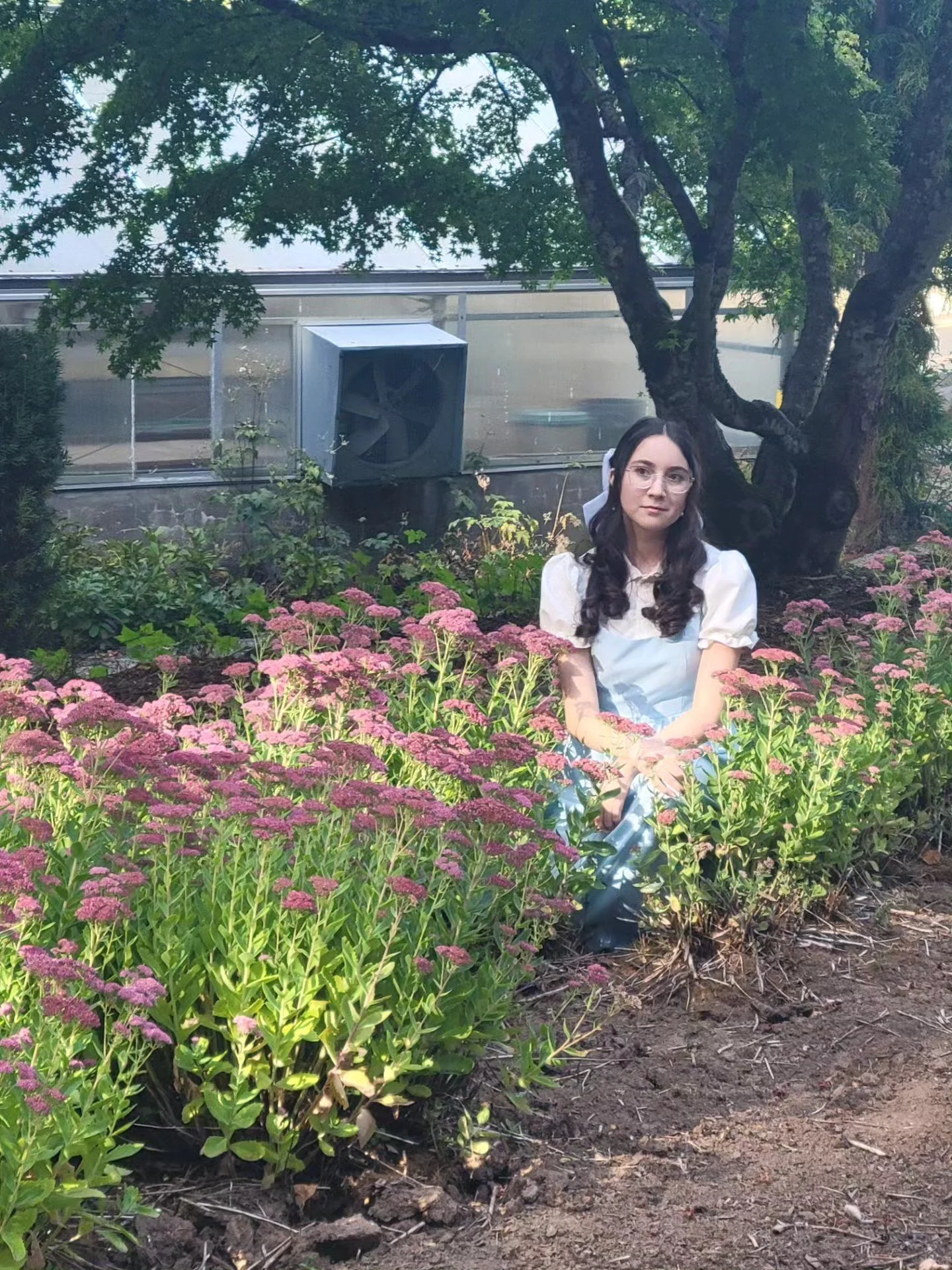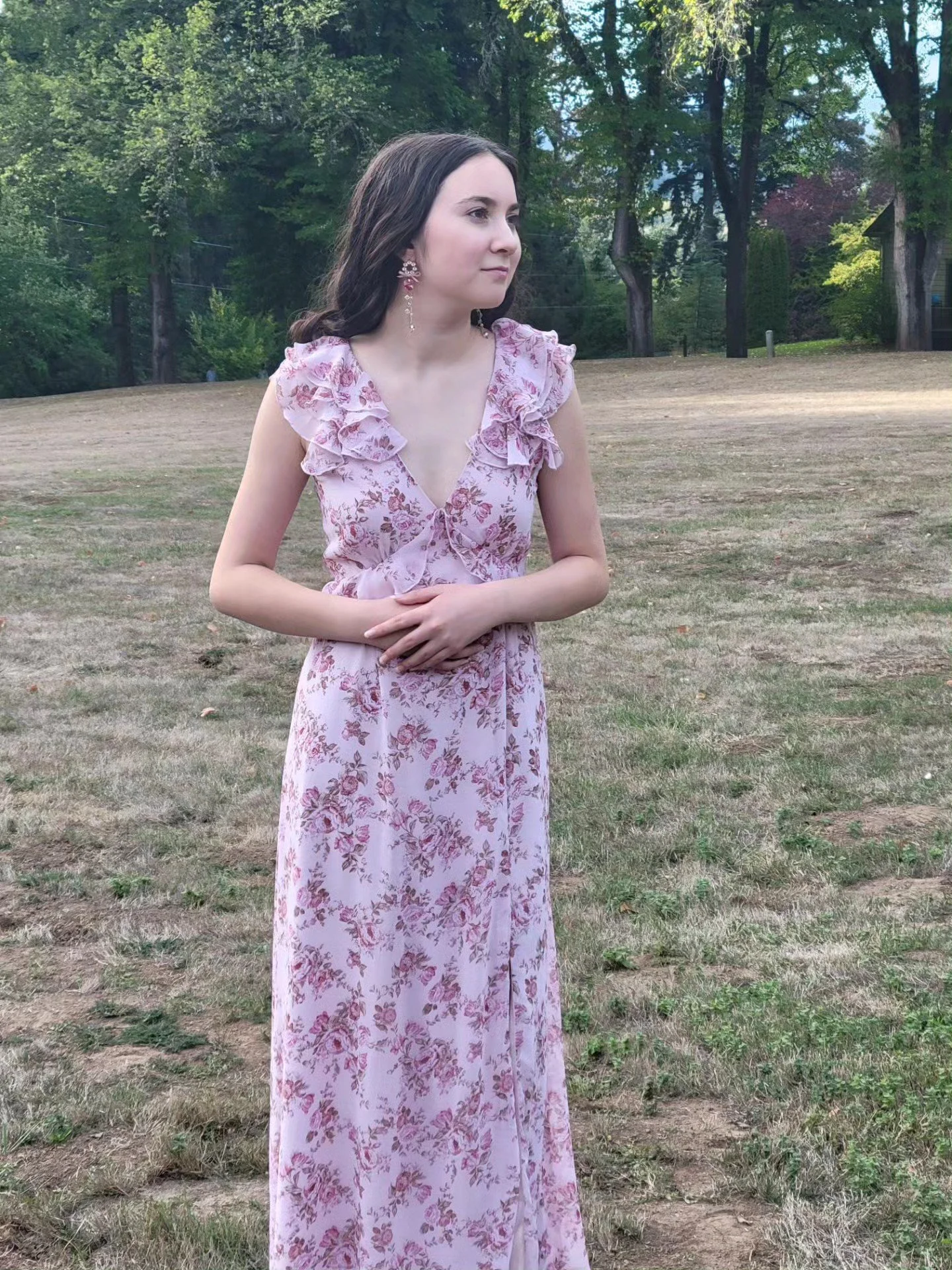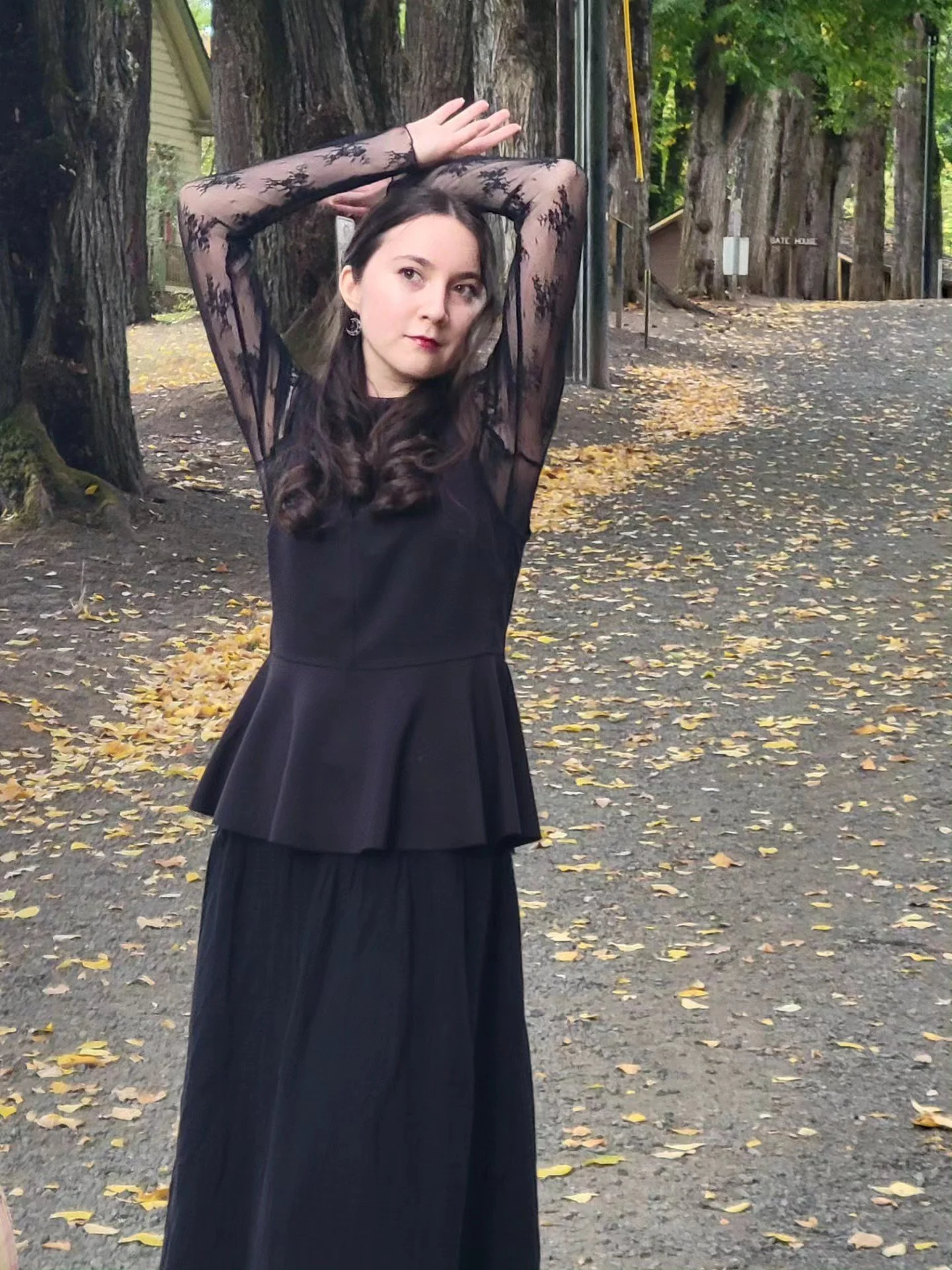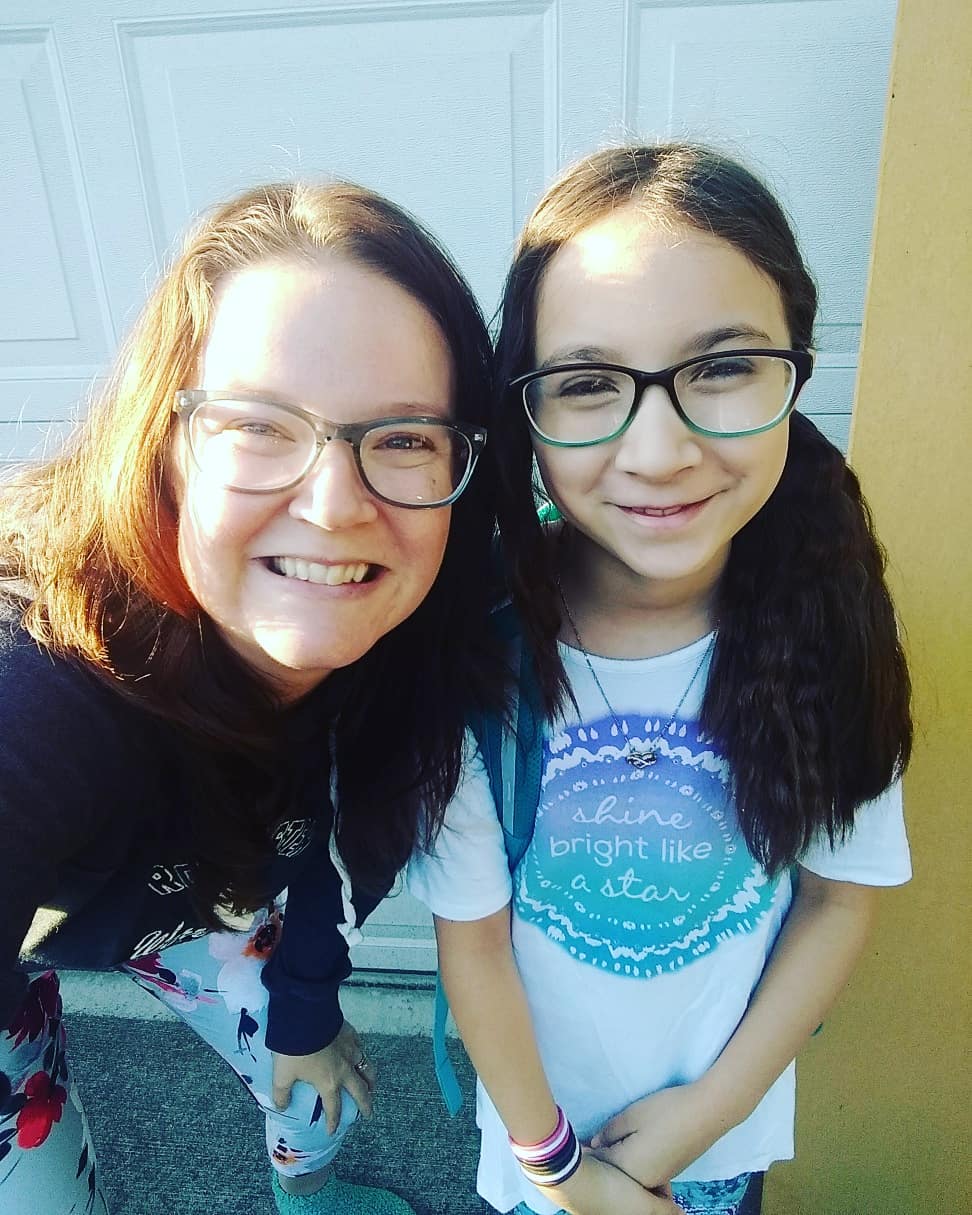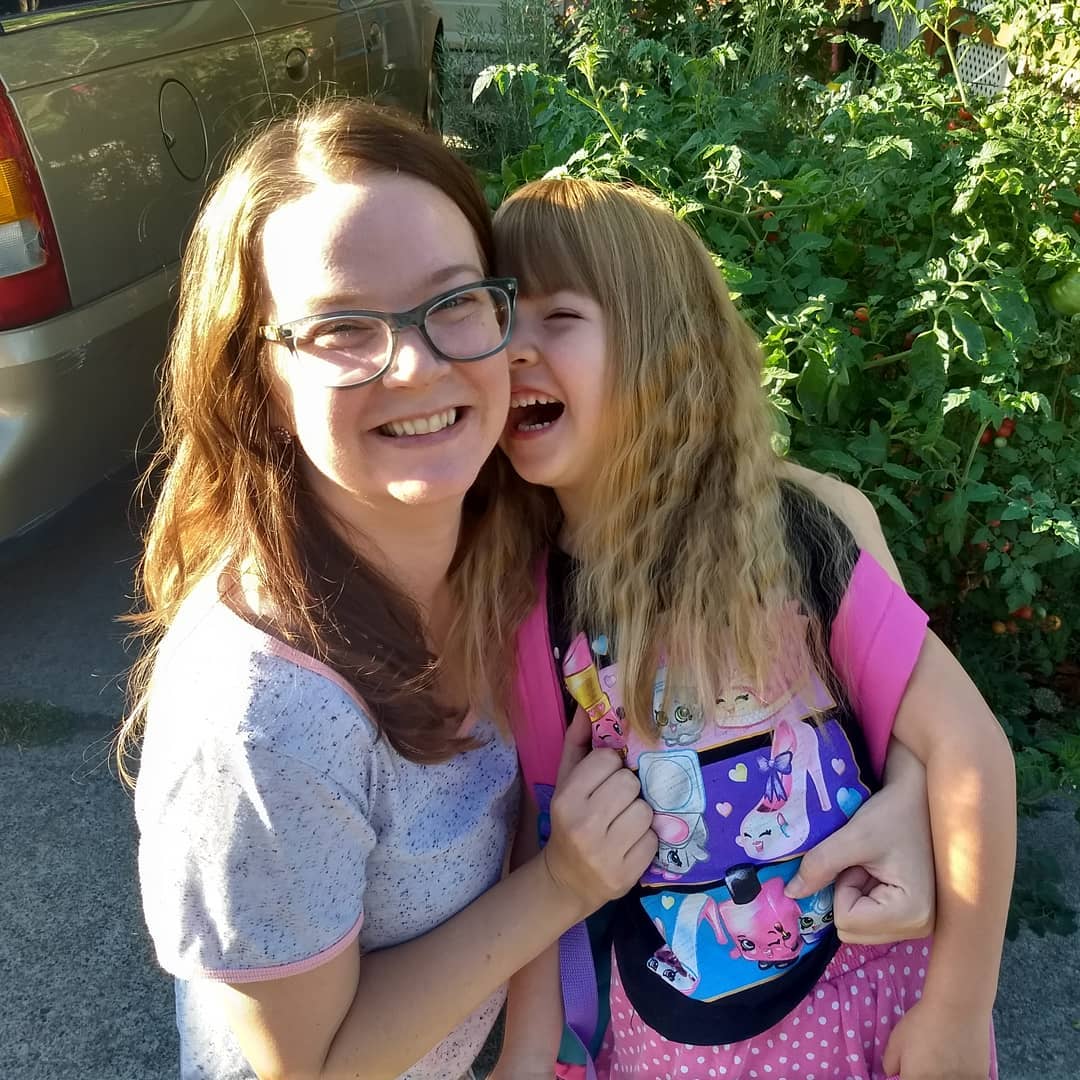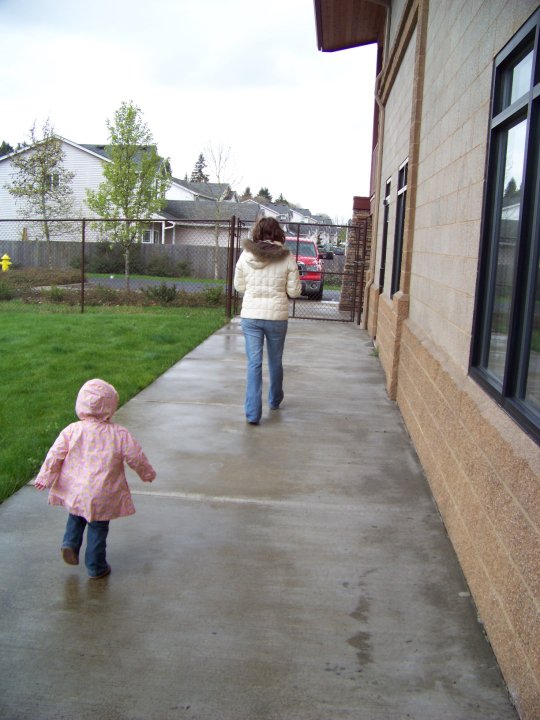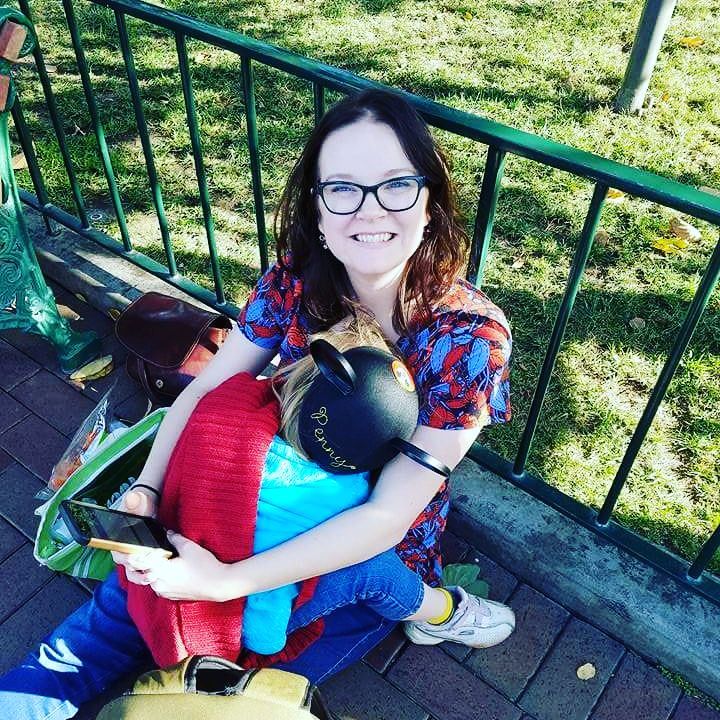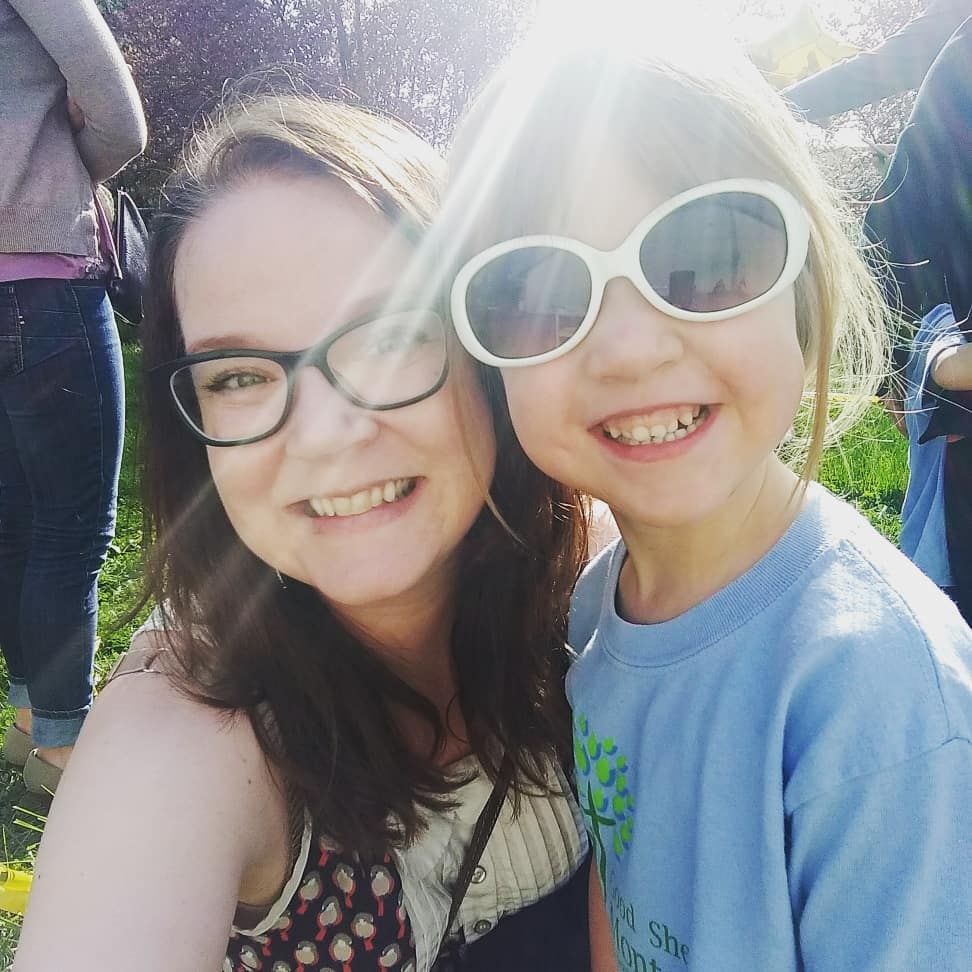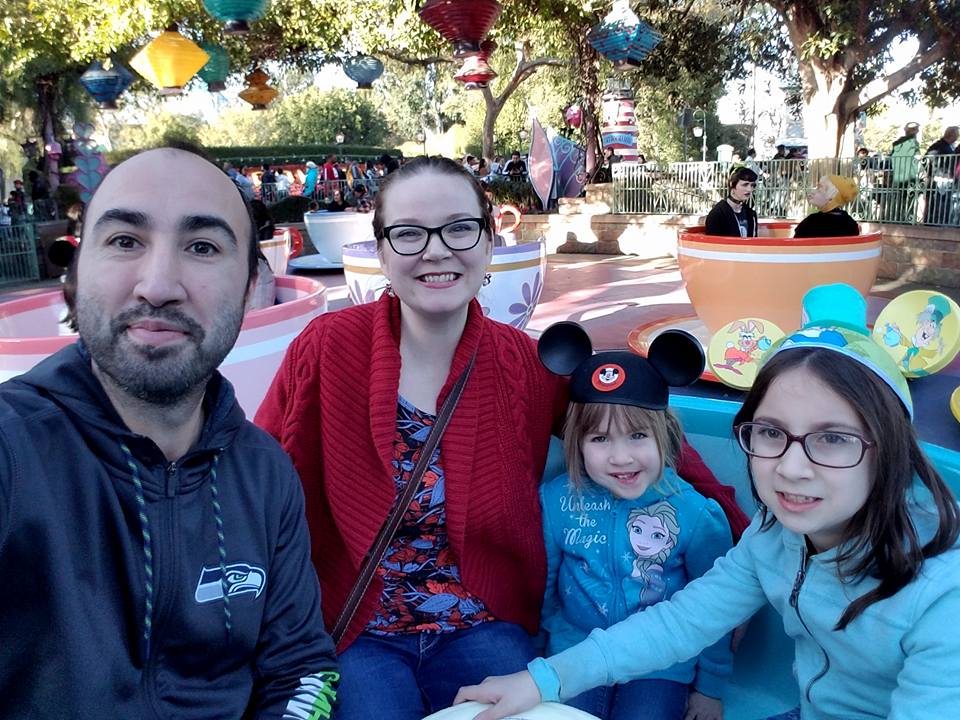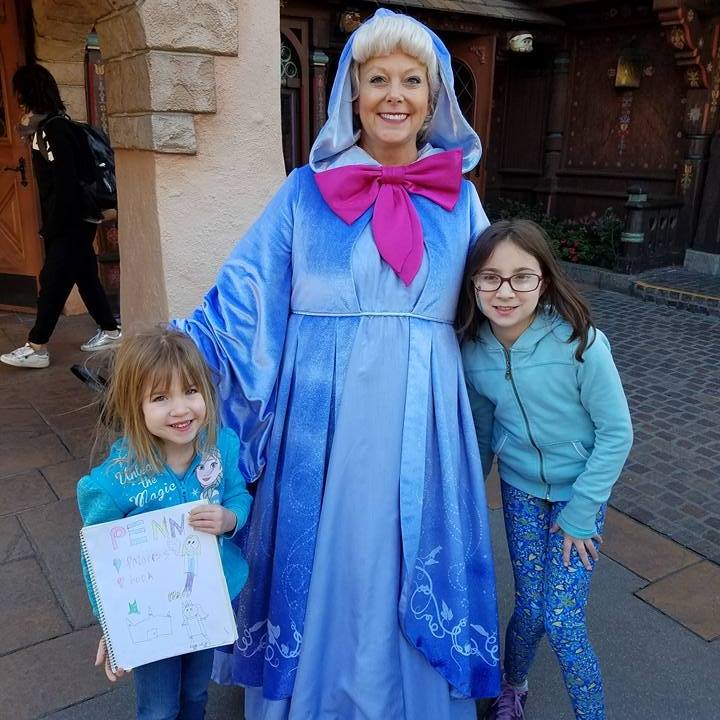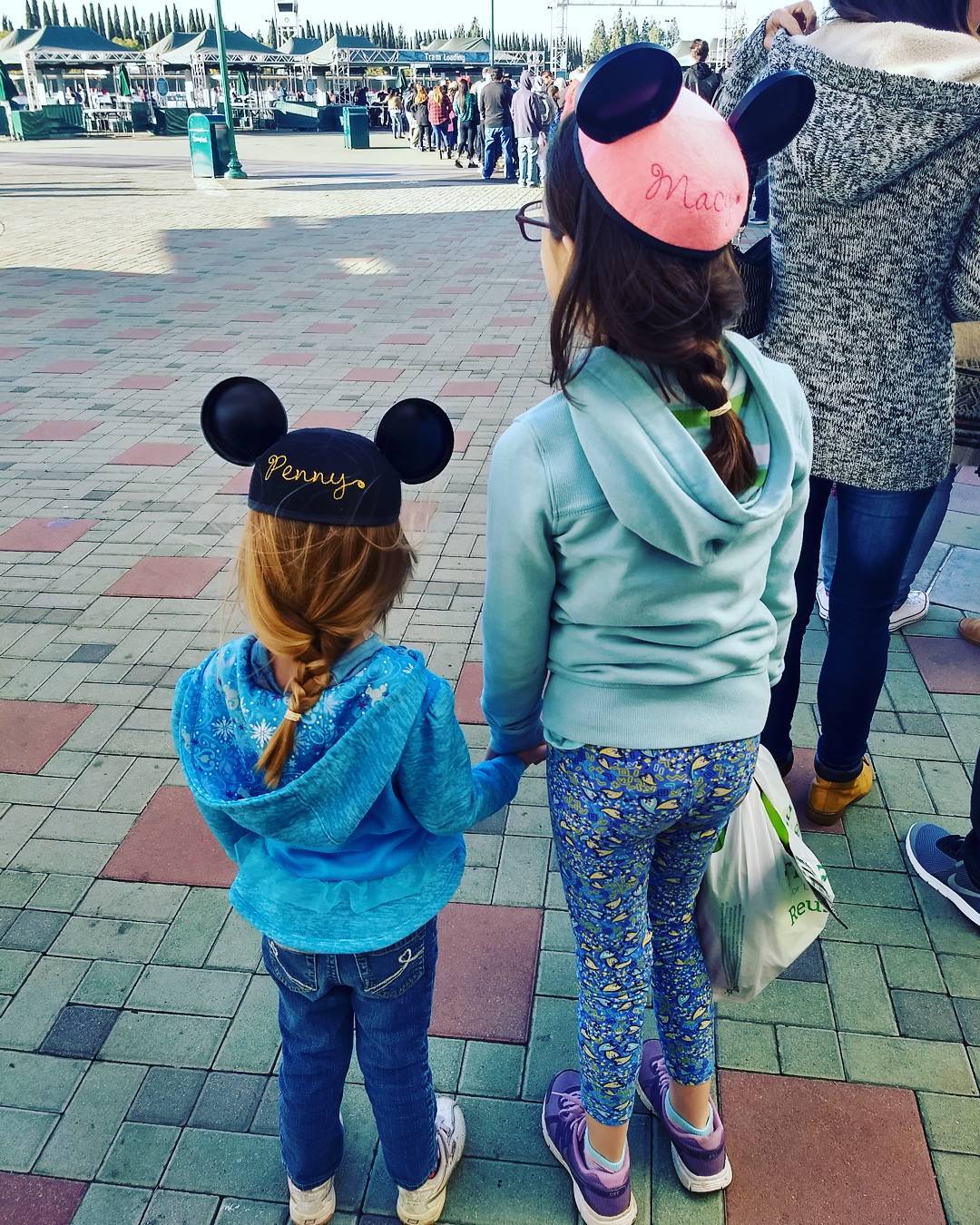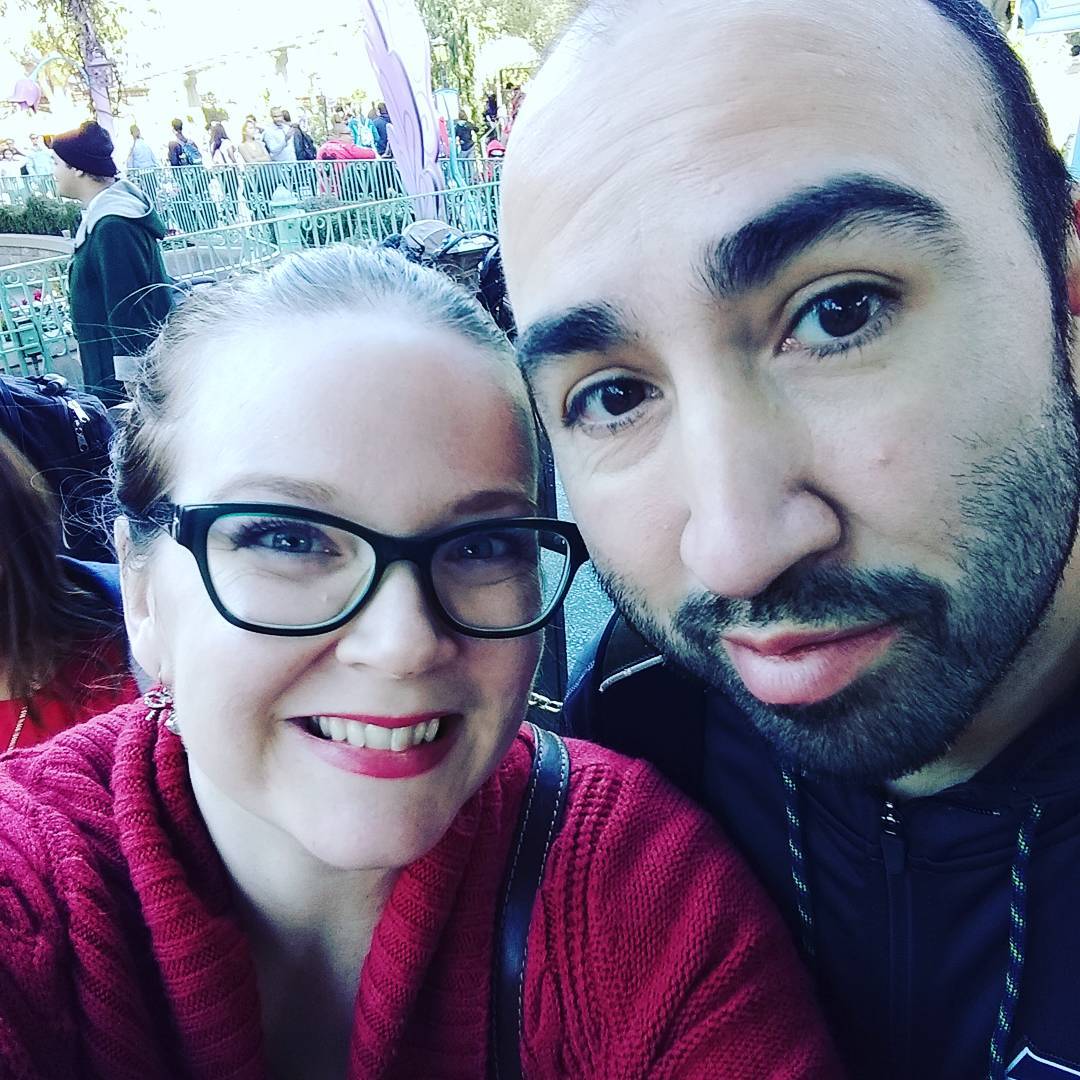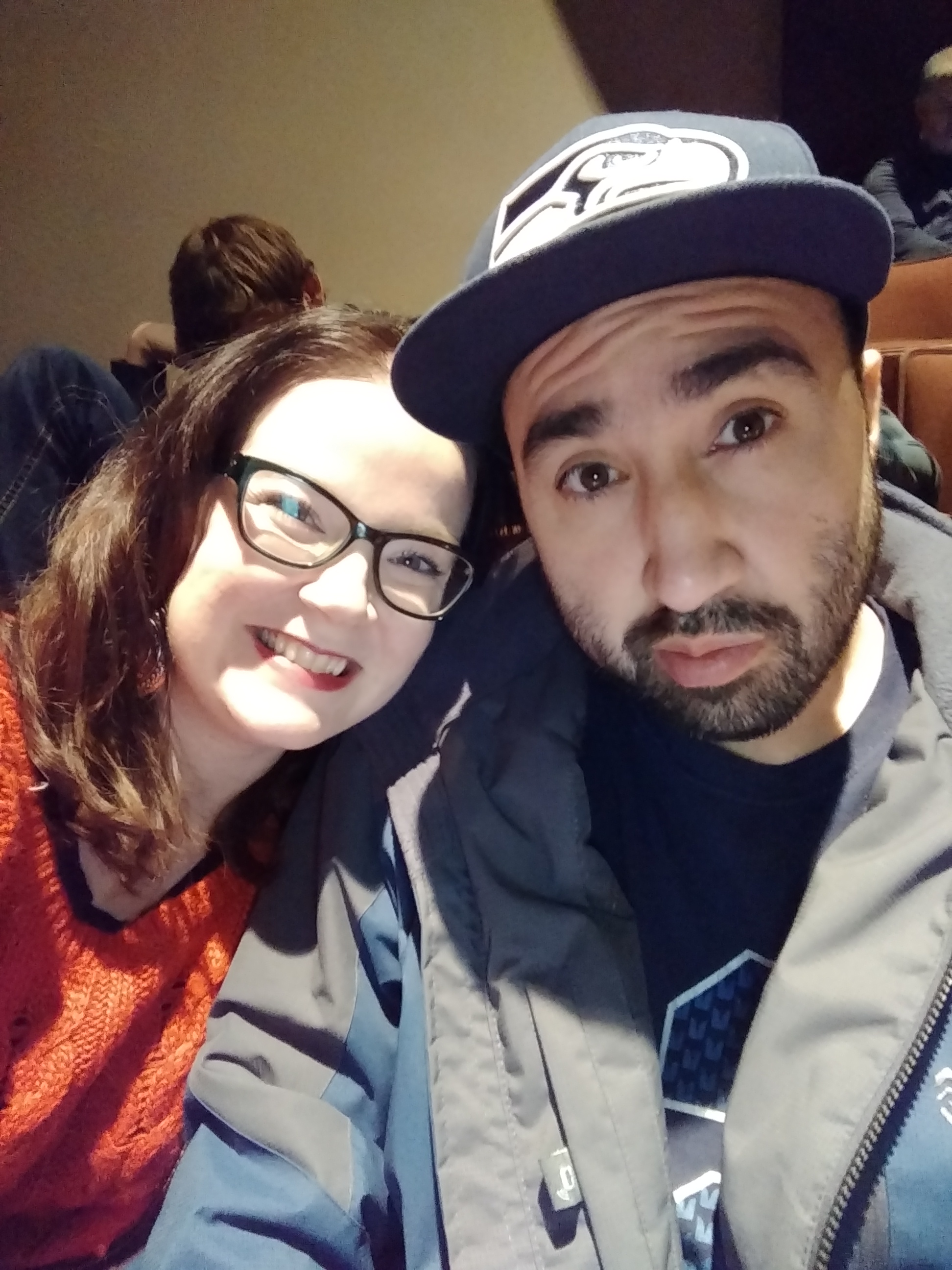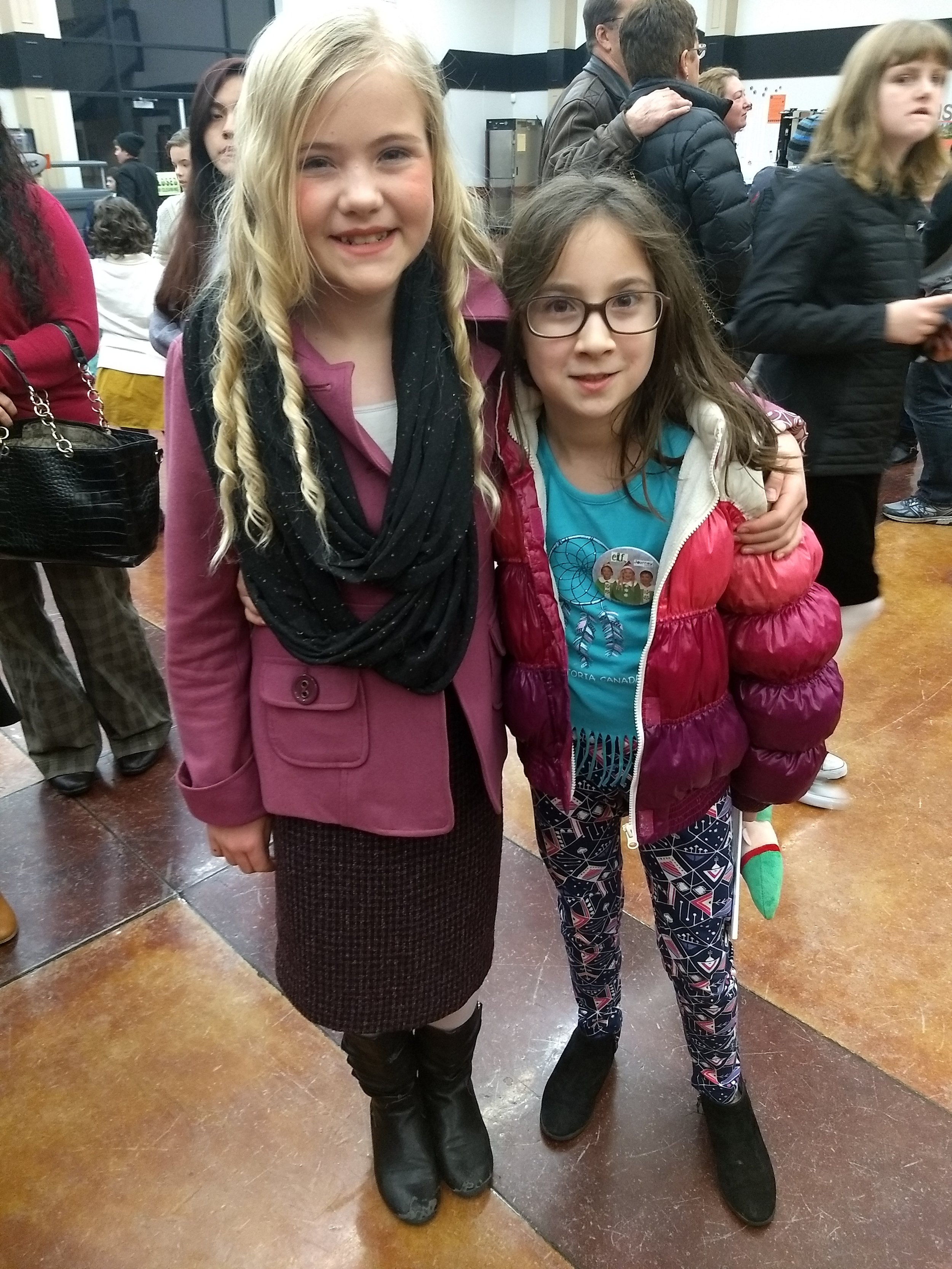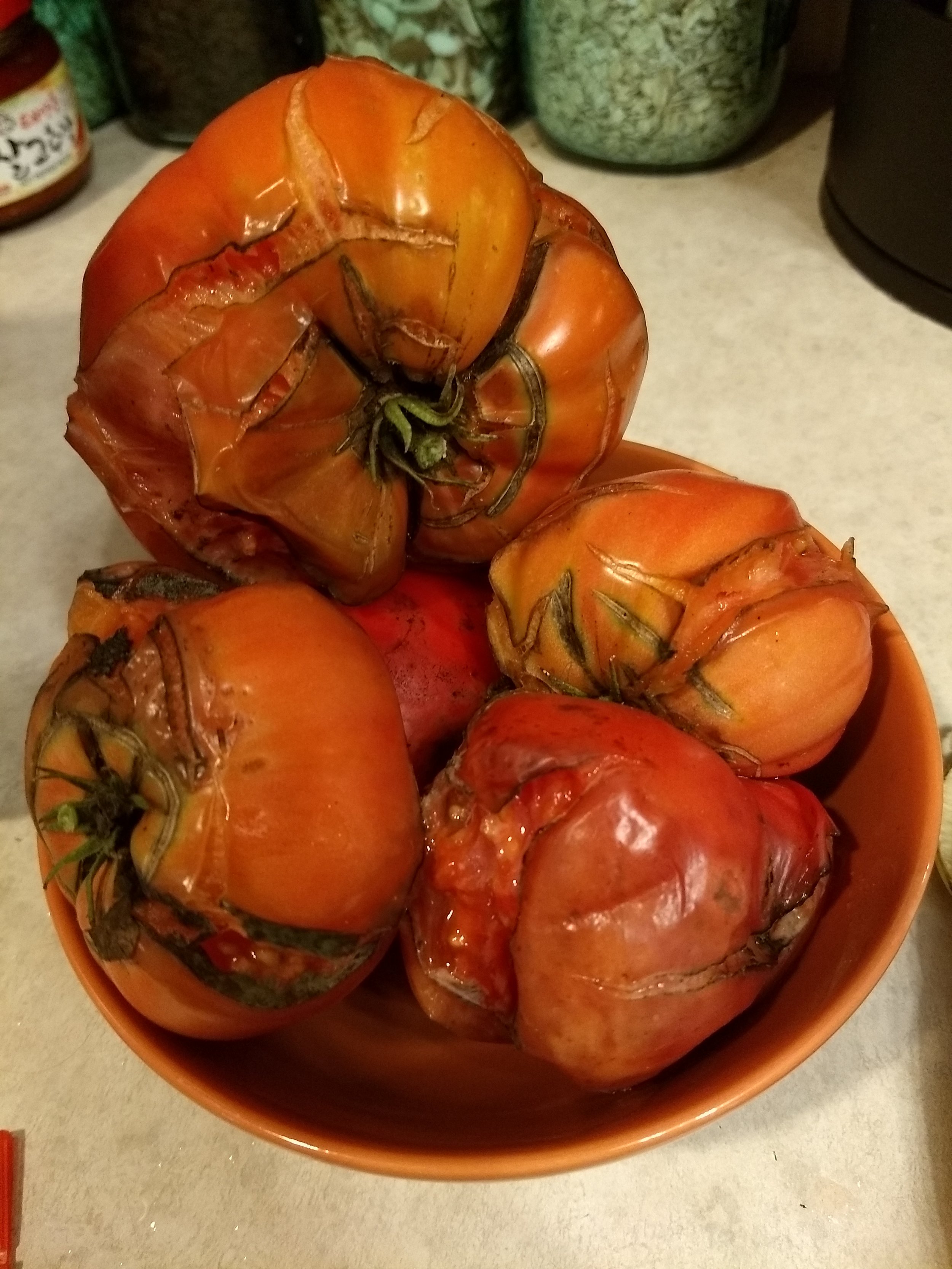I had an unexpected reaction to being a one-person support staff for Macy’s senior photo shoot on Sunday. I had our wagon with the makeup, outfit changes, lint roller, etc. As we wheeled to the first area of the park, we passed the playground. There were toddlers everywhere.
My body went right back. It was like rewinding an old VHS tape. I’m immediately there. To all those afternoons in the grass. So many viewings of Finding Nemo. Big belly laughs. A million frozen blueberries after we picked them for the first time. Reading side by side (we still do this on occasion).
People say we look alike. We joke that we just have similar taste in glasses.
She has always been herself. From that first day of kindergarten where she left with her chin up and did not look back, I knew. She dressed herself in wild patterns in preschool and I did not say a word.
We go to the first site and the photographer is checking light. We’re laughing. She looks beautiful, and young. This is her first look and it’s meant to be a little youthful. She’s so beautiful, I can barely look at her. My heart is bursting.
I begin texting my best friends. I’m freaking out. It’s too much. The beauty is overwhelming. Guys, I was not prepared for being in my feelings! I was thinking about logistics.
We hustle to the bathrooms because my girl does not want to change behind blankets we hold up. Her next look is more how she feels now, her theater self. It’s more modern, whimsical. We purchased a quill and leather-bound book for the occasion. We head to the garden. More laughter. Our photographer pays me an unexpected compliment. It registers with kindness.
We’re in a field. We’re mentioning the cool feature on the back of the dress. She’s natural. We even see her teeth in a few shots. We’re having fun.
She’s so composed. She’s always been a serious person. I respect her so much.
We race back to the bathroom for the final look. It’s more edgy. The most adult. Our photo shoot is running over time. Should I pay her more? I brought cash in the exact amount plus tip. Shoot.
We walk down the lane where we took family pictures two years ago, where we will be again in a few weeks the three of us. But tonight is about just one person. This person who is becoming. I’m watching this shot be taken and I think, my God, she is a woman.
Yes she is wearing my clothes and we’re still working on driving, but she is a woman. I text my friends, when did this happen?!?
I see her childhood dimples and her first audition at eight years old. I see her face disappointments and still celebrate those who got what she wanted. I see her rolling her eyes at her sister, and learning how to push back in our relationship. I see her. I see her. I see her.
In all our primary relationships, we project. I saw this so clearly when I left my long-term marriage. We project so much onto people we care so deeply about. It’s normal. It’s inevitable. It is tragic.
I want to see her so clearly. I have always wanted that. And I know, too, that no mother ever fully witnesses her daughters clearly. We see them and there are hidden parts. This is part of it. But my God, have I tried to witness. And I will keep trying. Forever.
She’s always belonged to herself. And that remains.
I cannot describe how incredibly beautiful it it to watch a woman become. I see every version of her I’ve known. I imagine future versions of her, God willing. And I adore every. single. one.
I can’t help but imagine that this might be how God sees us. And how we must see ourselves. I’ve spent the past few years really adoring old versions of me. Versions who were afraid of her own power. Versions that loved so hard and tried too much. Versions that meant well and were so terribly wrong. I see her. I see her. I see her. I love her. Look at her become.
If God is outside of time, can they see us in all our versions at the same time? Is mothering the closest thing to God?
I know I’ve never loved anyone as much as this child. And I know I never will. (and of course, her sister, too).
I don’t parent from a sense of who I think my kid should be. That never made sense to me - to the point, that I’ve always been clear that I have no idea who my kid should be. I love her hard and I try to live my life in integrity. I give her access to supports and community that I think she may enjoy. I feed her and hug her. I listen to know her well. That’s it.
All of that to say, I fucking cherish her beyond all else. The beauty radiating from her on Sunday is so much more than youth and actual physical beauty. She is wise. She is grounded. She is powerful. She’s fucking magic.
I live with a lot of privilege. My job reminds me every single day what a gift it is to do it. But the greatest privilege of my life has been standing on the sidelines watching these kids as they become. My God, what a gift.

